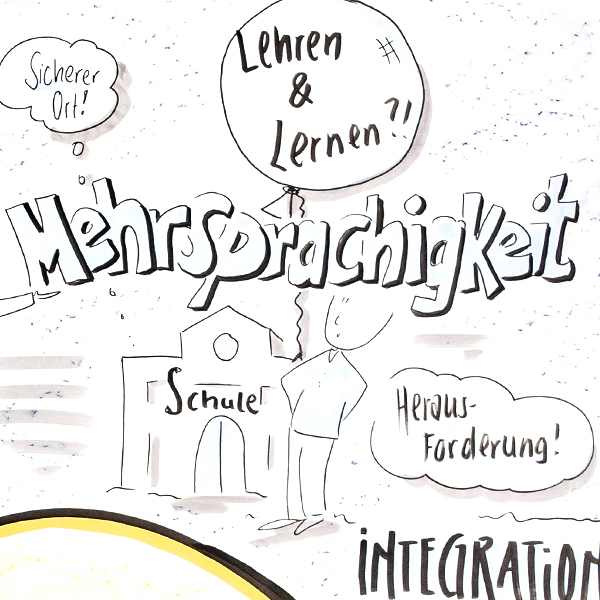“Only German may be spoken in this classroom.” European perspectives on exodus and origin
Ostfalia University of Applied Sciences, Braunschweig/Wolfenbüttel, Faculty of Social Work
Introduction
Further questions for the experts
Poster presentations by students
Breakout sessions – impressions
1. Introduction

The intake of refugee students presents schools and other educational institutions with challenges, but also with opportunities. One of the key challenges is that, due to their experiences of trauma, stress and uncertainty, many of the refugee children and young people often have special needs which schools have to take into account. These include support in language development and help in overcoming psychological stress. Schools therefore have to be prepared to create an integrative school culture that aims to integrate refugees into the community and facilitate a positive school experience. If this is successful, the promotion of intercultural competence and the mutual understanding helps prepare all students for a global (working) environment.
The starting point for the symposium was the question of how integration and a sense of belonging can be facilitated for refugee children in German schools. More than 190 representatives from academia and practice participated in the exchange. The symposium was built around the introduction of the study “Integration of newly arrived and refugee children and young people into the school systems of the European host countries France, Germany and Denmark” by Prof. Dr Christina Baur and Dr Adina Küchler-Hendricks.

One particular focus was on the significance of multilingualism. Paramount was the generation of conclusions in a comparison with other European countries that would serve a review of the (pedagogical) measures in Germany. Further theoretical and empirical findings supplemented and framed the results of the study: here, Prof. Dr Erika Schulze from FH Bielefeld University of Applied Sciences presented her concept “School as a safe place”, which explained the significant role of school social work.
This concept describes a school culture that produces the best possible learning and development opportunities for refugee and new immigrant students through a sense of security and positive relationships.
This means that the school is not just a place of learning but also a place where students feel safe and protected physically, emotionally and intellectually. Prof. Dr Thomas Geisen from the University of Applied Sciences and Arts Northwestern Switzerland conveyed the importance of belonging and affiliation in the context of migration as continuous interactive work. In the school context, affiliation as interactive work necessitates the creation of an environment in which all can feel welcomed and accepted. This requires from all group members skills such as empathy, active listening, communication and collaboration. Breakout sessions took place after every presentation; in these, participants worked in moderated small groups to discuss the new content in each case and link it to their own (professional) experiences.
One particular perspective of the symposium has been created by Britta Mutzke’s graphic recording, which visually documents the presentations and the results of the discussions. Students from the project “Education in intercultural fields of action” by Prof. Dr Christine Baur have additionally enriched the contributions to the symposium with a poster session on their migration-aware practical projects. At the close of the symposium, all participants were invited to take part in an anonymous online evaluation, which now further supplements the impression of the symposium in the following documentation.
We hope you enjoy reading the following and gain valuable insight from it!
